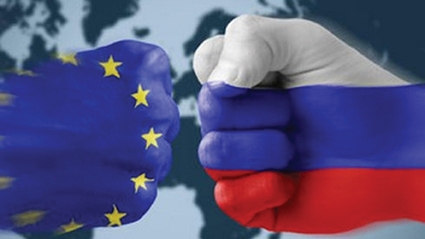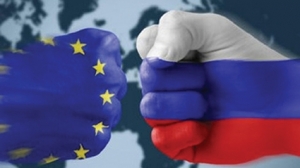The EU is Beating Back Russia
Op-Ed
Thinking about Georgia and its position in the regional order we often hear how vulnerable the country is and how weak at times the European Union (EU) seems to be in its confrontation with Russia. However, I wanted to look at the EU and find some positive trends and as I will argue below, the EU has in fact gained the upper hand in its battle with Moscow over the former Soviet space.
The Russia-West confrontation has, over the last several years, reached its highest point since the collapse of the Soviet Union in 1991. Contrary to the much-purported opinion that Russia has been successful in projecting its influence across the former Soviet Union, I have argued on a number of occasions that in fact Russian influence has significantly receded on the Eurasian continent. US pressure is important here, as are internal economic problems in Russia. But if we look more closely, we can see that it has been the European Union which undermined Russian cultural, political and economic influence in east Europe and the former Soviet Union, not vice-versa.
Russia was weak in the wake of the Soviet collapse, true. But Russia has become strong since Putin came to power in the early 2000s and, contrary to logic, Moscow has lost influence in Moldova (at least partly), Ukraine and Georgia and is losing economic preponderance in Central Asia. The answer might lie in Europe which, for the first time in its history, is experiencing what might effectively be called a unified Europe, as it has never been so united and unanimous in its internal as well as foreign policy actions.
Indeed, history proves that it is not about a strong or weak Russia. The latter it has been several times- even weaker than the current Russian Federation. Take the example of the early XVII century when Moscow was occupied by the Poles and saw utter political chaos inside the country culminating in a change in the ruling dynasty. A century later, Russia was confronted by powerful Swedish monarch Charles XII, and in the early XIX century, by French Emperor Napoleon I. There are other examples such as the Crimean War and the coalition of European states against the Russian Empire under Nicholas I, or even Adolf Hitler’s ambitious military campaign “Barbarossa” in 1941.
But each time Russia managed to come out victorious and expand its territories, whether into eastern Europe or the Caucasus. The reason for this was Russia’s military assertiveness, but it also could be explained by the lack of unity among European states in that period. Both Napoleon and Hitler lost their empires in Russia, but if we look closer, it can also be seen that they were focused on dominating Europe, causing grievances and political opposition among its states and leaders, only cutting loose when they began experiencing military troubles in Russia. The same could be said of Charles XII and others, with Europeans of the time forced by politicians to live in either French, German or Swedish-dominated Europe.
After each victory, Russia expanded itself and if we look at by how much territory and when the Russians managed to incorporate strategically important lands, one constant is there: European disunity and constant wars among European states which allowed the Romanovs or, later, the Soviets to move forward into eastern Europe. The 30 Years’ War, 7 Years’ war, French Revolutionary wars, Napoleon’s campaigns, etc. – all distracted Europeans from what was going on at the fringes of the continent where Russia was meticulously working on incorporating modern Ukrainian, Belarussian, Baltic and South Caucasian states or principalities.
This largely shaped Russia’s grand strategy towards Europe: to divide European states and support the weakest. However, this was not done to uphold the European balance of power, as the British Empire had been doing throughout centuries, but to protract European conflict as long as possible. Stalin, for example, was very eager in 1940 to have Germany fight France for years and entered the war only when the two powers were much exhausted.
A Different Europe
One can only wonder at how much Europe has changed in the course of a century. There is now no open antagonism among European states and most are united within the European Union. The EU, despite some difficulties, still retains a common defensive, economic and foreign policy agenda. Take an example of how the EU pressures Russia and how Moscow, in comparison with previous centuries, has consistently failed to drive a wedge among the European states.
I mentioned Napoleon and Hitler and their Paris or Berlin-centered European orders where almost everyone was forced to submit to their influence. Nowadays, the EU is a different order where eastern European countries aspire to join the grouping: it is this unity which has much undermined the Russian strategy.
In other words, if we look at the map of the last 25 years one can easily notice how far a united Europe has gone in limiting Russia’s influence. And this creates a fundamental problem for Moscow as the Kremlin currently does not see any viable option to improve its geopolitical position.
Emil Avdaliani












